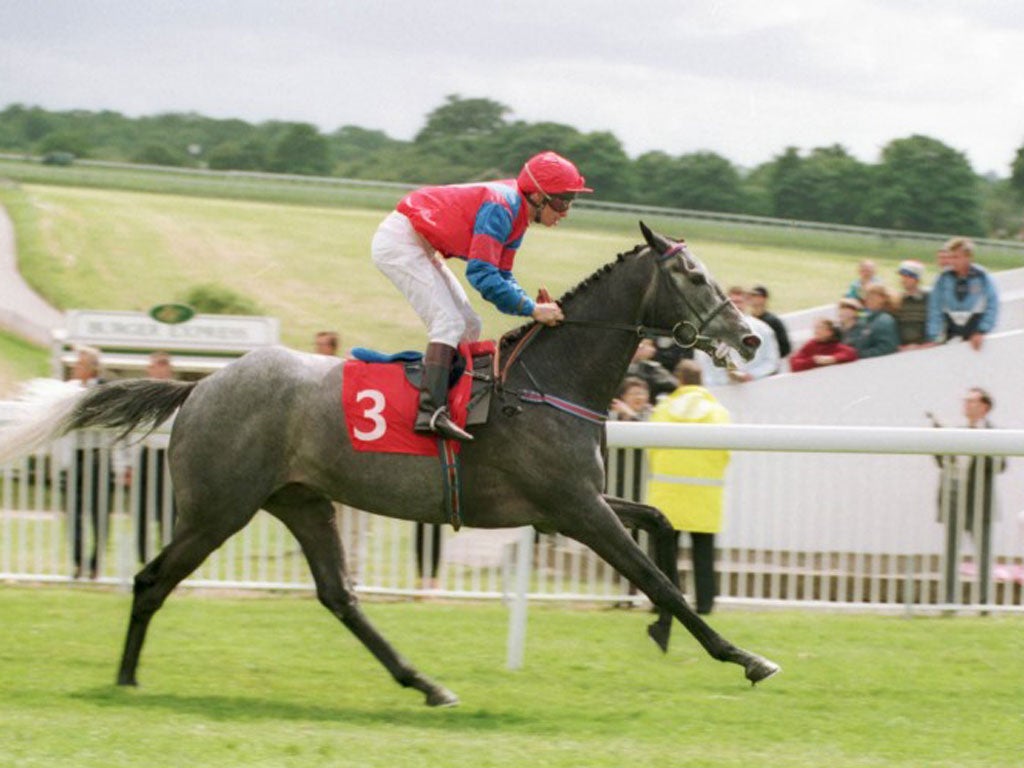Errors & Omissions: Is it really so surprising that a horse should have living descendants?
A selection of linguistic shortcomings from this week's Independent

Here is the text of a picture caption published in last Saturday’s paper, accompanying an article about the retirement to stud of the celebrated racehorse Frankel: “Northern Dancer: The legendary Canadian sire was Frankel’s great-grandfather. He commanded record fees of $1m per cover. Although he died in 1990 at the age of 29, many of today’s top racers are in his bloodline.” Why does that “although” strike such a false note?
You could get away with this form of words: “He died in 1990 at the age of 29, but many of today’s top racers are in his bloodline.” The thought is banal, but it makes sense. The reader is being treated as something like a grieving relative. A pity about poor old Northern Dancer dying, but at least we can console ourselves that his bloodline lives on. But the form of words starting with “although” doesn’t work like that. It focuses not on the reactions of the onlookers but on the logic of the events themselves. The writer seems to be suggesting that there is some contradiction or inconsistency between a horse dying and his descendants living on. Obviously there isn’t, and the reader is left puzzled.
Bullshit! “Barack Obama called Mitt Romney a bulls****er,” mumbled last Saturday’s US Election Diary, in the strangled tone of a Victorian gentleman forced to refer to some gynaecological detail. The writer was apparently unaware that the paper’s news pages had already summoned up the courage to report the President’s robust language without resort to asterisks.
Everybody has an opinion about asterisks. Many feel that there is no point in offending readers by using bad language, and asterisks enable us to report what people have said without doing so. Me, I hate these linguistic net curtains; we shouldn’t be printing bad language unless we have to quote it to make a serious point, but I think most readers are able to take this sort of thing on the chin when necessary.
But one thing is for sure: if we are going to use asterisks at all, we need to be consistent about which words need them.
Capital punishment: This is from a news story published on Monday: “Almost five million workers are being paid less than the amount considered necessary to afford a basic standard of living – £8.30 an hour in London and £7.30 outside the capital.” Always there is that little pang of mingled sympathy and irritation upon seeing a writer calling London “the capital” so as to avoid repeating the word “London”. In this case, what was wrong with “elsewhere”?
Cause and effect: On Tuesday we published an article about the difficulties of cancer research and treatment. It included this: “The optimism of the 1970s has given way to the dogged determinism of a cancer community under siege from the growing global epidemic.”
Determinism is the idea that everything that happens is determined by a rigid chain of causation, and free will is an illusion. Surely what the doctors and scientists are displaying is dogged determination.
Join our commenting forum
Join thought-provoking conversations, follow other Independent readers and see their replies
0Comments